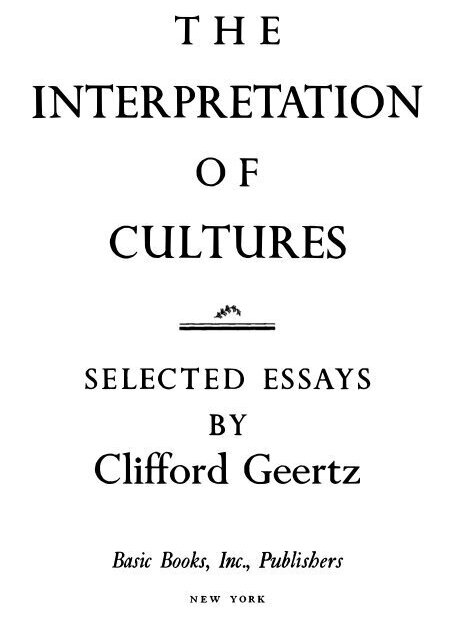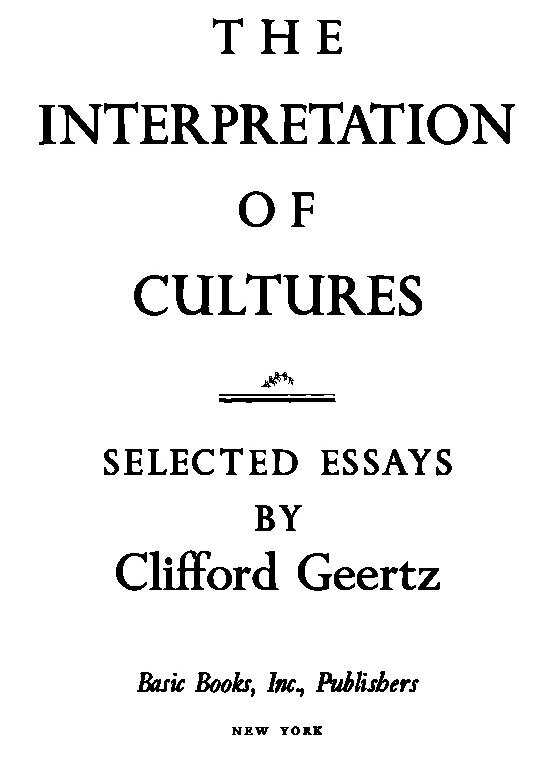The Interpretation of Cultures: Selected Essays
by Clifford James Geertz
The methodology of a contemporary anthropology master.

- Format
- e-book
- Publisher
- Basic Books Publishers, New York
- Published
- 1973
- Author
- Clifford James Geertz
- Pages
- 478
- Language
- English
pdf 8.2 MB
A reference for specialists and a larger readership, these essays offer a highly enjoyable reading and a great synthesis of anthropologist Clifford Geertz’s methodology. How to get into the multifaceted specificity and idiosyncrasy of a culture? How do we reclaim or reject our past depending on our cultural references?
For Angkor lovers, we outline two of the author’s many insights, firstly when he remarks: “There has been the reconsideration among prehistorians — archeologists mostly, but some orientalists and ethnologists as well — of the size and scope of ancient states and of the developmental stages through which those states seem to have passed. Maya, Teotihuacan, Indus, Angkor, Madjapahit, Inca, Mesopotamia, Egypt — all the magical names — stand less these days for glittering bronze-age barbarisms born adult out of Gordon Childe’s “Urban Revolution” and more for extended, gradualistic developmental cycles, some of them similar, some of them different. Or, rather, they stand for phases, momentary ones often, in such cycles ; phases which may have been both less grandiose than their legends proclaim or their architectural remains seem at first glance to indicate, and more complexly related to the material conditions upon which they rested than Marxist theorists, even revisionist Marxist theorists, usually imagine.”(p 330)
And second, the important methodological distinction between ‘epochalist’ and ‘essentialist’ states born out of the de-colonization process: “The more ideologized new states — Indonesia, Ghana, Algeria, Egypt, Ceylon, and the like — have tended to be both intensely epochalist and intensely essential ist at the same time, whereas countries more purely essentialist like Somalia or Cambodia, or epochalist like Tunisia or the Philippines, have been rather the exceptions. The tension between these two impulses — to move with the tide of the present and to hold to an inherited course — gives new state nationalism its peculiar air of being at once hell-bent toward modernity and morally outraged by its manifestations. There is a certain irrationality in this. But it is more than a collective derangement; it is a social cataclysm in the process of happening.”(p 243)
Photo: ‘Essential figures’ : A modern Khmer apsara in 2020
Tags: anthropology, methodology, reference documents, cultural legacy, heritage conservation, state formation
About the Author

Clifford James Geertz
Clifford James Geertz (23 Aug. 1926 – 30 Oct. 2006) was an American anthropologist specializing in ‘symbolic anthropology’. He was until his death professor emeritus at Princeton University, Institute for Advanced Study.
A master in ‘thick description’ (finding the deepest cultural and symbolical background behind daily actions) and in the theory of religion, Geertz particularly studied Southeast Asian cultures and the development of Islam. Among his publications are the anthology Myth, Symbol, Culture (1974), Kinship in Bali (1975), Meaning and Order in Moroccan Society (1978), Negara (1981, about the theater art form in Bali), and several studies in Javanese customs.


